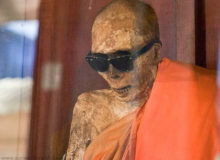
Staying Healthy During Warm Weather Vacations (Dr. J and Dr. I’s Amazing Race Elimination)
Heat stroke, dehydration and sunburn can all be major concerns when traveling to a warm weather destination. Heat Stroke, dehydration and sunburn can however be easily prevented if you remember these simple tips to ensure healthy warm weather vacations;
1 – Always wear loose fitting clothes. Loose fitting clothes allow air to flow more freely over your skin. This can aid in dispersing heat which will keep you cooler.
2 – Always wear lightly colored clothing. Lightly colored clothes reflect the suns UVA and UVB rays much better than dark colored clothes do. Excessive exposure to the sun’s UVA rays has been associated with an increased risk of developing skin cancer while exposure to the sun’s UVB rays has been associated with an increased risk of suffering sun burned and sun damaged skin. By more effectively reflecting the sun’s UVA and UVB rays, lightly colored clothes help to prevent overheating of your skin and thusly do a better job of keeping you cool.
3 – Avoid spending excessive amounts of time directly in the sun, especially between 10AM and 4 PM when the sun is at its highest points in the sky.
4 – Wear breathable fabrics like linen, cotton and rayon.
5 – Always wear sunscreen with an SPF (Skin Protection Factor) of 30 or higher.
6 – Apply your sunscreen at least 30 minutes before you plan to go outside as it can take up to 30 minutes for your skin to absorb the sunscreen effectively.
7 – Reapply your sunscreen every 2 hours while outside.
8 – Always wear sunglasses when out in the sun. Excessive exposure of the eyes to the sun’s UVA and UVB rays has been associated with the development of cataracts and age related macular degeneration.
9 – When outside in the sun wear a hat with a brim large enough to protect your face from the sun’s rays.
10 – Always drink plenty of water to prevent dehydration, even if you do not feel thirsty. Most times when you feel thirsty you are already dehydrated.
11 – Be mindful of the signs of heat exhaustion and heat stroke. Both heat exhaustion and heat stroke results from a combination of dehydration and prolonged exposure to excessive temperatures. When someone suffers heat exhaustion or heat stroke they frequently will become excessively thirsty, have profuse sweating, feel nauseated, develop a headache and feel dizzy and/or confused. Under some circumstances if not addressed immediately, heat stroke can lead to irreversible brain damage and even death.
12 – If someone is exhibiting signs or symptoms of heat exhaustion or heat stroke they should drink cold water, seek shelter in a cool place out of the sun and request immediate medical attention.

 June 15, 2017
June 15, 2017




 May 19, 2018
May 19, 2018 




